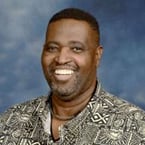In previous posts, I have approached the concept of race relations from a theoretical point of view. However, in this post, I want to give you some practical ideas to help make the task ahead seem less daunting. When we work with congregations who ask us for the magic ingredient for reaching their community, we have just one word for them. If you want to know the secret to being relevant in your community, come closer and I will tell you. A little closer. The secret is RELATIONSHIPS!
John Maxwell once said about leadership, “Everything rises and falls on leadership.” Any hope we have of overcoming racial tension, any hope of seeing beyond color, is based on our ability to build authentic relationships. On to the task at hand: how do you develop a circle of trust? I believe there are five key elements.
1. Establish and maintain integrity.
“Whoever walks in integrity walks securely, but he who makes his ways crooked will be found out.” Proverbs 10:9
It is the foundation of trust in any relationship. Integrity, by definition, means keeping promises and always telling the truth, no matter how difficult it might be. It is so easy in a relationship not to say what needs to be said. We do that because we don’t want to hurt the other person’s feelings. However, if we are going to have an authentic relationship, we need to have the freedom to share open and honest truths. If the relationship you are developing has integrity, it can stand the test of time.
2. Open and clear communication is important.
I love this statement; it so often defines what happens: “I know you believe you understand what you think I said, but I’m not sure you realize that what you heard is not what I meant.” Do you ever feel that way when you are talking to someone very different than yourself? That what they heard is not at all what you meant? As relationships develop with people from different backgrounds, you learn as you spend more time in authentic relationships to interpret what people are actually saying. In the beginning, a great deal of time is spent on explaining what you meant. So be patient with one another.
3. Consider each other as equal partners in the relationship.
Trust is established when you begin a relationship as equals. Now, that may sound strange, but oftentimes we enter into a relationship with a sense of superiority. “I have something valuable to offer you.” If the relationship begins with a hierarchical mindset, it will start off at a huge disadvantage for both parties. You don’t develop an authentic, healthy relationship when one partner feels superior. It is hard to respect and find value in someone you think is beneath you.
4. Focus on shared interests and values.
When you are developing a relationship, focus on your similarities rather than that which makes you diverse. What do you both commonly value? God? Family? Golf? What are the things you have in common? What are your passions, your fears, your struggles? What lessons have you learned from a shared experience that might help the person you are building this fledgling relationship with? Often in this situation, through the fires of trials, the deepest and strongest connections are formed.
5. Be willing to be vulnerable regardless of personal risk.
How does that look? It requires a willingness to be transparent, authentic, and ready to share your mistakes and faults. When you are vulnerable and have nothing to hide, you radiate trust.
In closing, for those who thought the theoretical was hard, now we get down to the nuts and bolts. If you want to change the culture, it happens slowly, over time, through forming deep and authentic communities, one relationship at a time. I pray you keep following. I believe in the power of the almighty God; He can use us to change the world.
Scripture: ESV®.
Look to God’s Word to begin tearing down the walls dividing us.














